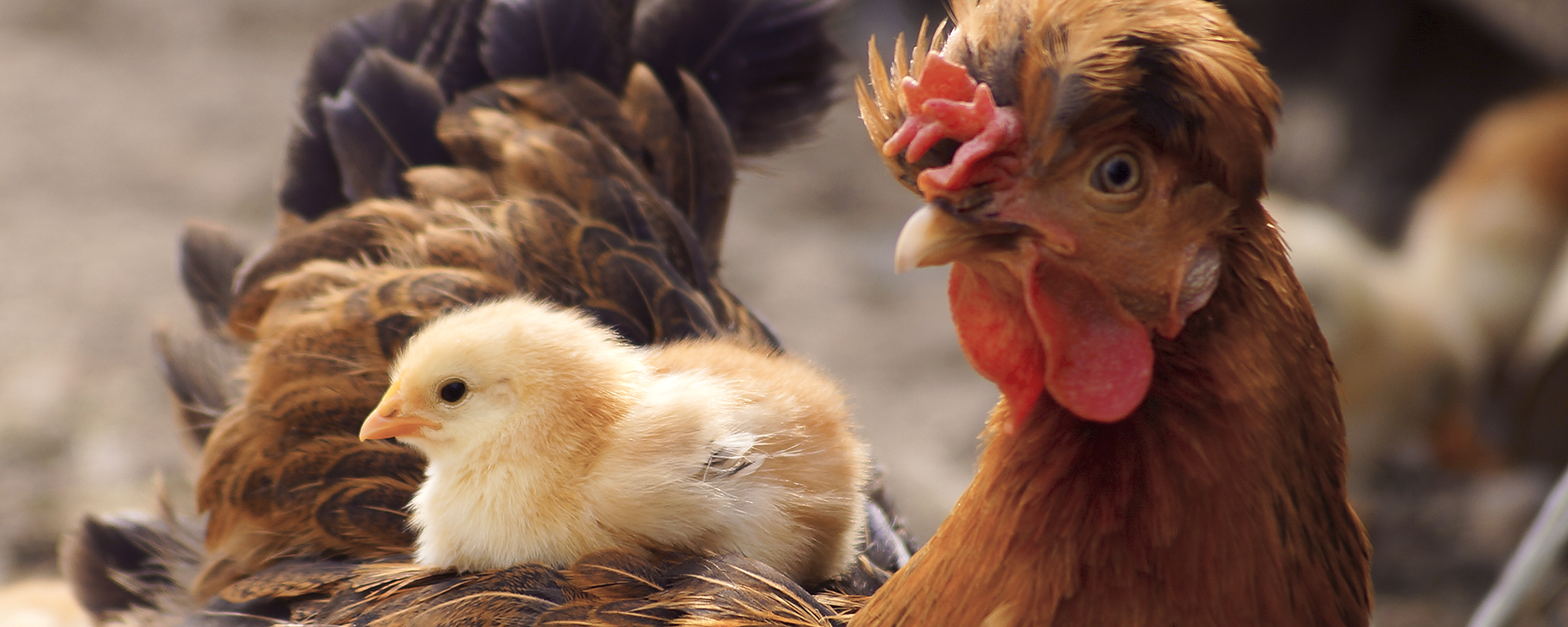By Sara Amundson and Kitty Block
Each year, as the final weeks of the calendar approach, we reflect on the progress we’ve made to end animal cruelty all over the world. That said, the holidays and celebrations that center around a dinner table can be a difficult reminder that much work still needs to be done.
This week, as we come together with family and friends for Thanksgiving in the U.S., we honor our own tradition: Kicking off our year-end blog posts that celebrate progress for animals. In the humane world we envision, no animal is locked in a cage or crate where they can hardly move for months on end. Instead, farmed animals are treated with the respect and care they deserve and more plants and fewer animals are used in our global food system.
We work around the world to end the worst systemic abuses of farmed animals while urging the transformation of our food systems such that everyone enjoys more plant-based foods in place of animal products. Here are just some of the wins in 2025 we’re celebrating:
Ending the cage age for farmed animals
In the U.S., the number of hens living cage-free is at an all-time high. Roughly 137 million birds, which is about 45% of hens in the U.S. egg industry, can walk, run, lay eggs in nesting areas, perch and fully spread their wings—natural behaviors they never would have been able to do in cages.
In Mexico, India, Malaysia, Singapore and Viet Nam, our work with producers on their farms to end cage confinement for hens in the egg industry has now improved the lives of more than 1.17 million hens, over just the last two years.
Due in large part to our advocacy, many of the world’s largest companies have fulfilled their promises to transition to cage-free and crate-free supply chains. This year, in the U.S., Bloomin’ Brands reached 100% cage-free eggs at its 1,100+ U.S. locations. Conagra Brands is also 100% cage-free.
Outside the U.S., in 2025, 20 companies reported being more than halfway toward cage-free egg supply chains in Latin America and Asia. After years of work with JBS—one of the world’s largest companies—95% of mother pigs in its Brazilian supply chain now spend significantly less time in gestation crates, with more than half in fully gestation crate-free systems.
In 2025, we worked with more than 15 financial institutions to demonstrate how banks and investors can integrate animal welfare into their portfolios by incentivizing cage- and crate-free production systems.
Defending animals in halls of power
Our legal and legislative teams plays a critical role in advancing as well as protecting hard-won progress for farm animals, including landmark laws against cage confinement—California’s Proposition 12 and Massachusetts’ Question 3. The pork industry’s resounding defeat in the 2023 National Pork Producers v. Ross case (in which the Supreme Court of the United States unanimously ruled against them on their main claim) unfortunately did not stop new threats from coming in the courts and in the halls of Congress.
Thankfully, in June, the Supreme Court of the United States declined to review pork industry claims in the Iowa Pork Producers Association v. Bonta case, signaling the end of the road for that particular case. And in more good news, in October, the U.S. Court of Appeals for the First Circuit affirmed the district court’s ruling upholding Massachusetts’ Question 3. Humane World for Animals has played an active role in these cases, drafting and filing multiple briefs in support of these critical animal protection laws. We’re grateful to our broad coalition of partners, including the Massachusetts Society for the Prevention of Cruelty to Animals, Animal Rescue League of Boston, Animal Legal Defense Fund, Animal Outlook, The Humane League, Farm Sanctuary, Animal Equality and Compassion in World Farming, along with the law firm Riley Safer Holmes & Cancila.
But as we celebrate these legal victories, new cases are on the horizon and we are also defending these laws against congressional attack. Big Pork is again attempting to use Congress to give corporate pork producers—who want bottom-of-the-barrel animal welfare standards—special treatment. This time, the so-called Save Our Bacon Act (H.R. 4673) and the Food Security and Farm Protection Act (S. 1326) aim to wipe out Proposition 12, Question 3, and laws like them. We’ve mobilized strong opposition to those bills and also fended off efforts to negate state farmed animal welfare laws in the annual bill funding the U.S. Department of Agriculture. This remains an ongoing fight to ensure federal legislation does not overturn these critical protections for farmed animals. But every year that more producers transition to crate-free housing because of the state laws is a significant victory because it normalizes compliance with animal welfare standards and makes it more difficult to make the case that these brazen federal bills are at all needed.
Stop dangerous bills that could wipe out animal welfare laws >>
Holding companies accountable
We’re devoted to ending the worst of animal suffering by working with corporations to improve animal welfare. While we’ve seen major victories, when companies refuse to change, we take action.
This year, we concluded litigation against Smithfield Foods after a longstanding lawsuit over what Smithfield told consumers about its sow housing. We filed the case in 2021, alleging that Smithfield’s marketing misled consumers by not fully disclosing the company’s gestation crate usage. While the litigation was pending, prior to the settlement, Smithfield made changes to its marketing to give consumers additional information about its sow housing practices, and we will continue to press Smithfield to improve its pig housing practices.
We also asked Starbucks to disclose to company shareholders the details of its implementation plans and timelines for reaching its cage-free egg commitments in China and Japan, in what’s known as a shareholder proposal. The Securities and Exchange Commission sided with us here and in fights over two other shareholder proposals to additional companies, forcing those companies to put concerns like animal welfare directly in front of their stakeholders and underscoring the legitimacy of our advocacy. Along with a coalition of allies, we filed a second petition with the SEC to hold JBS, the largest meat processing company in the world, accountable for making allegedly misleading statements to investors and the public about the company’s animal welfare policies and its antibiotic use, among other things.
Creating a kinder menu
One of the most powerful ways to reduce animal suffering, cut greenhouse gas emissions and improve public health is to replace meat, eggs and dairy with plant-based foods. More than 94.9 billion land animals are kept and killed for food worldwide.
We are driving a global shift toward a plant-forward food system. In 2025, we presented to more than 3,270 educators, nutritionists and staff on the benefits of plant-based eating, and we equipped more than 615 foodservice professionals with the skills to create plant-based meals. This outreach resulted in menu commitments that transitioned an estimated 160.6 million meals in 2025 from animal-based meals to plant-based meals.
Every year, 1.5 billion animals are used to supply the U.S. foodservice industry alone. Across the U.S., we focused on shaping menus in schools, hospitals and colleges where foodservice decisions influence millions of meals every day. Our College and University Protein Sustainability Scorecard spotlighted dining programs that prioritize plant-based menus and encouraged schools to make and keep plant-based commitments. After the publication of our scorecard, the University of North Texas, which serves 11,000 meals daily, committed to serve 60% plant-based meals on campus by 2027. Our Food Service Industry Protein Sustainability Scorecard ranked the 50 largest foodservice management companies in the U.S. on their plant-based and dining sustainability initiatives, inspired stronger commitments, and celebrated kept promises that transformed meals to plant-based foods.
All over the rest of the world in 2025, we secured new commitments that will transition more than 2.3 million meals per year to plant-based and trained over 370 chefs, as well as more than 570 nutritionists and other professionals across Brazil, Canada, India, South Africa, Thailand, the UK and Viet Nam. These new commitments will spare an estimated 28,500 terrestrial animals every year and accelerate a global shift toward sustainable food systems.
Our global policy work amplifies this tremendous momentum. In 2025, at annual climate meetings in Bonn and Brazil, we positioned food reform as a cornerstone of climate leadership and urged United Nations member states to integrate plant-based food policies into climate strategies.
The scale of this work is enormous; there are too many inspiring stories to mention here about the commitments to transform the food system using ingenious approaches that promote kindness to animals and sustainability for the future. So, we’ll end with just one example: In South Africa, our chef training is combined with Greyton Farm Animal Sanctuary’s “Pigs to Plants” program, which helps pig farmers transition to plant-based farming, to create productive school and community gardens all rooted in indigenous food traditions.
As part of this, we launched a garden and trained cooks at Protea Primary School, where 800 children now have access to fresh organic veggies and plant-based meals. We are working with policymakers to further support this program to empower families and promote locally grown food.
None of this work would be possible without a movement of engaged and passionate supporters who believe a kinder, more humane world is possible. Together, we’re not only changing hearts and minds, but also helping create a future where compassion for all animals is the norm.
Kitty Block is president and CEO of Humane World for Animals.




